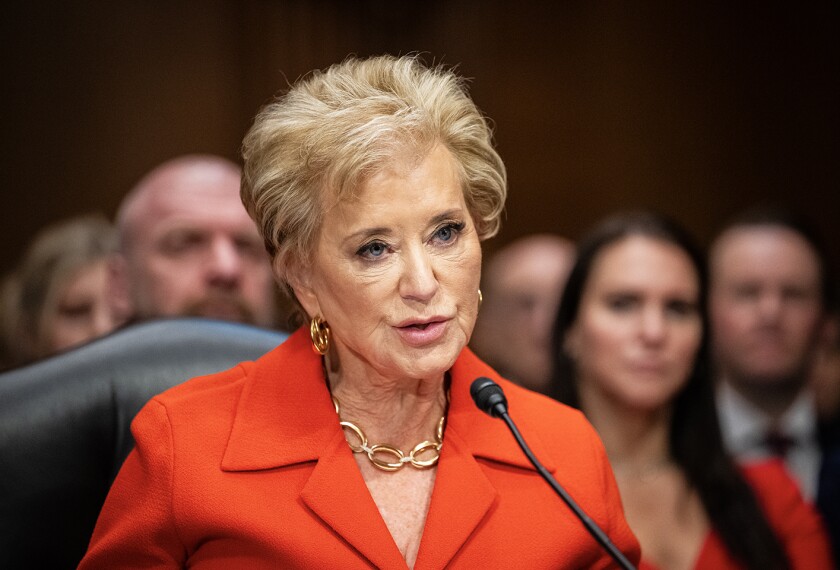President Bush has nominated eight candidates to fill existing and forthcoming vacancies on the National Board for Education Sciences.
The 15-member board, created in 2002, gives nonpartisan advice to the Institute of Education Sciences, which is the key research arm of the Department of Education, and to IES Director Grover J. “Russ” Whitehurst.
But Mr. Bush’s choice of nominees has some advocates wondering whether he’s trying to put an enduring ideological stamp on the independent board.
“It appears that the highly visible ideological and political orientations of several of the new nominees would make it more challenging for the board to continue the good work of its first years,” said James W. Kohlmoos, the president of the Knowledge Alliance, which represents many of the research organizations and laboratories that do business with the Education Department.
Of the eight nominees announced by the White House on Aug. 18—some of whom are being renominated for a second term—three have been involved in some favorable, and controversial, scholarly analyses of school choice programs.
They include Paul E. Peterson, a professor of government at Harvard University; Caroline M. Hoxby, an economics professor at Stanford University; and Patrick J. Wolf, an education professor at the University of Arkansas in Fayetteville.
Two other nominees, Elizabeth Ann Bryan and John L. Winn, have close ties to the Bush administration. Ms. Bryan, the board’s current vice president, was a senior adviser to then-Secretary of Education Rod Paige. Mr. Winn was adviser to then-Gov. Jeb Bush of Florida before being appointed the state’s education commissioner in 2004.
Observers do not expect the Senate to confirm the nominees before Mr. Bush leaves office.





